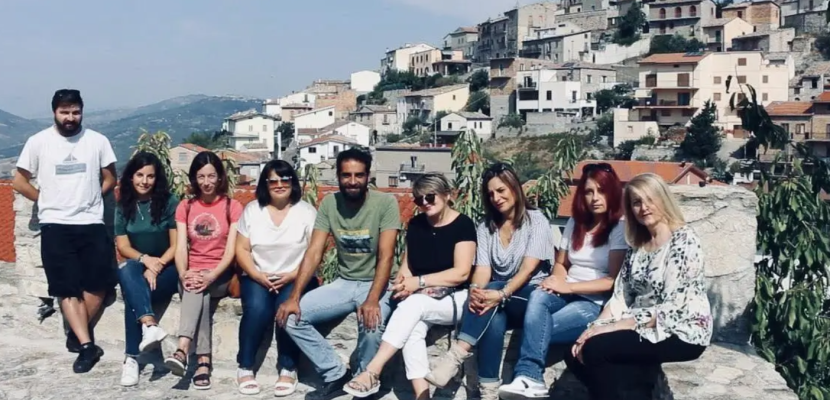
RIKA Community Cooperative

About this good practice
The RIKA Cooperative in Montemitro, Molise, tackles economic stagnation and cultural heritage preservation challenges, compounded by the Croatian-Molise linguistic minority presence. Historically, Montemitro faced depopulation and economic decline, eroding traditional industries and heritage. RIKA promotes sustainable development while safeguarding Montemitro's cultural identity. It integrates initiatives like organic farming, artisanal production, and eco-tourism to create jobs and attract visitors, thanks to the synergistic and dedicated efforts of participating citizens in the community model. Community engagement is pivotal, with locals, farmers, artisans, and entrepreneurs participating. RIKA collaborates with local authorities and stakeholders. Beneficiaries include residents, the Croatian-Molise minority, and tourists, fostering economic growth, cultural preservation, and social cohesion. RIKA's model demonstrates effective community-driven solutions for rural challenges while honoring linguistic and cultural diversity, promoting sustainable growth in Montemitro and beyond.
Expert opinion
Resources needed
RIKA Cooperative required initial funding to acquire and renovate premises for the bar and minimarket. Human resources include the 9 founding members, volunteers, and potentially hired staff for the cooperative's various activities.
Evidence of success
RIKA Cooperative exemplifies good practice by revitalizing Montemitro through community-driven initiatives. It addressed depopulation and service scarcity by reopening vital establishments and developing innovative projects like an eco-hotel and "Borghetto dei Gusti" trattoria. This endeavor not only generated employment but also preserved cultural identity and promoted sustainable tourism, evident from increased tourist influx and improved local economy.
Potential for learning or transfer
RIKA Cooperative embodies an innovative approach to rural revitalization, showcasing how community-driven initiatives can effectively address multifaceted challenges. Its success lies in pioneering projects like eco-tourism and local gastronomy promotion, which harness the region's unique cultural and natural assets. This innovative model emphasizes proactive community engagement and leverages local resources to create sustainable economic opportunities. Its adaptability and success make it a compelling solution for rural areas across Europe, particularly in regions facing similar challenges of depopulation and economic decline. Lessons from RIKA's experience highlight the importance of innovation in fostering community involvement, leveraging local resources, and promoting sustainable development to address rural challenges effectively.
Further information
Good practice owner
You can contact the good practice owner below for more detailed information.
